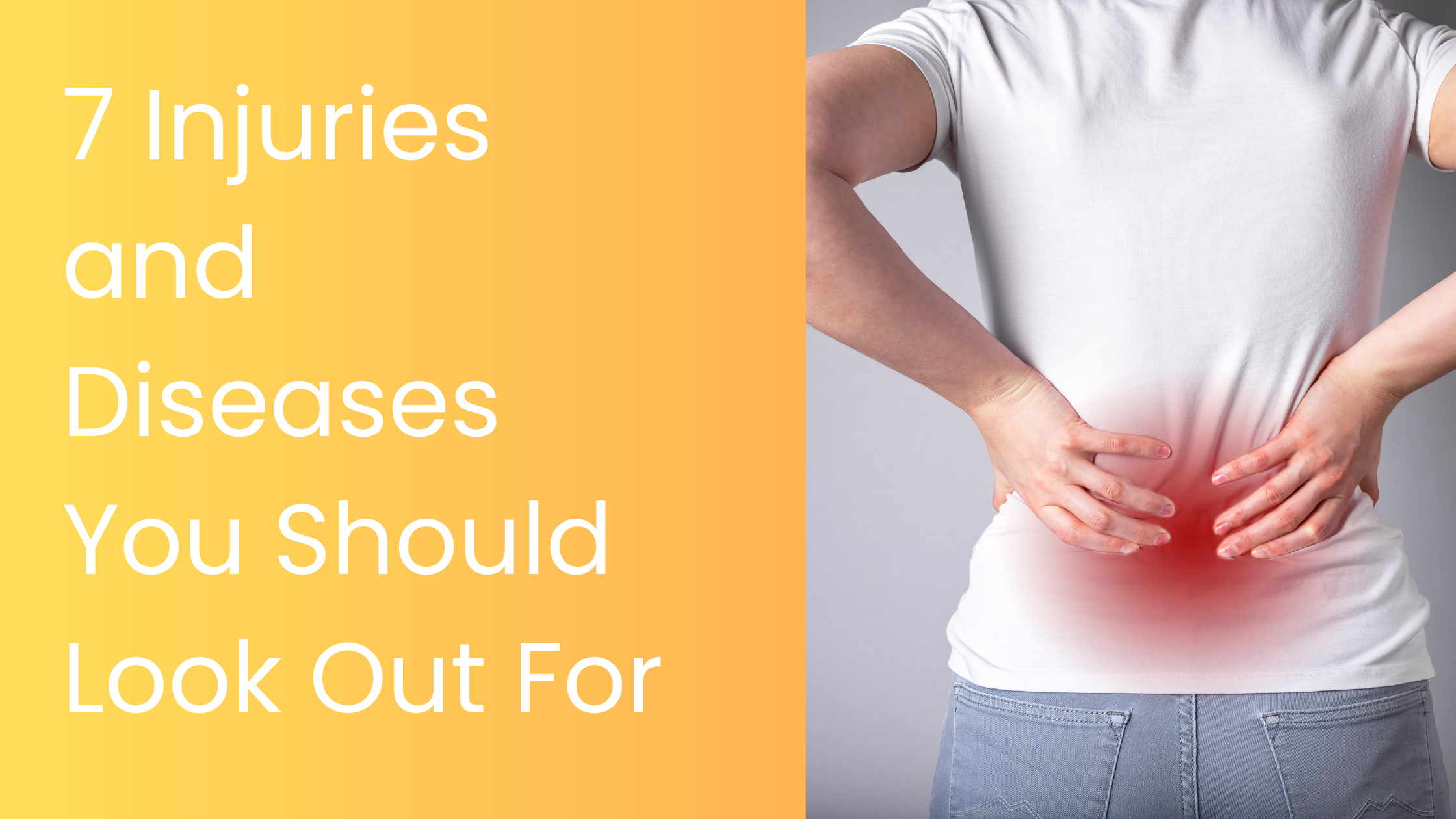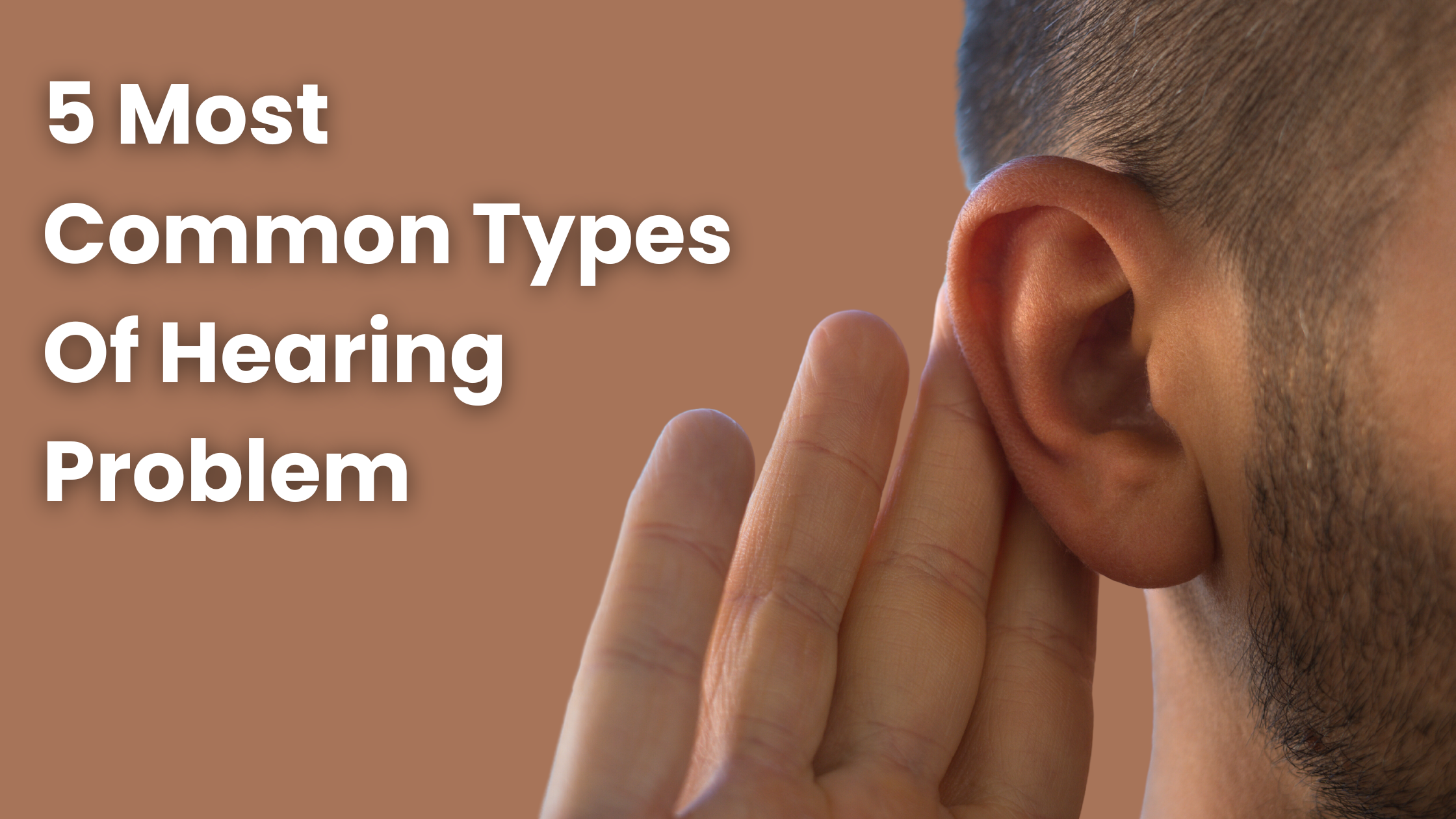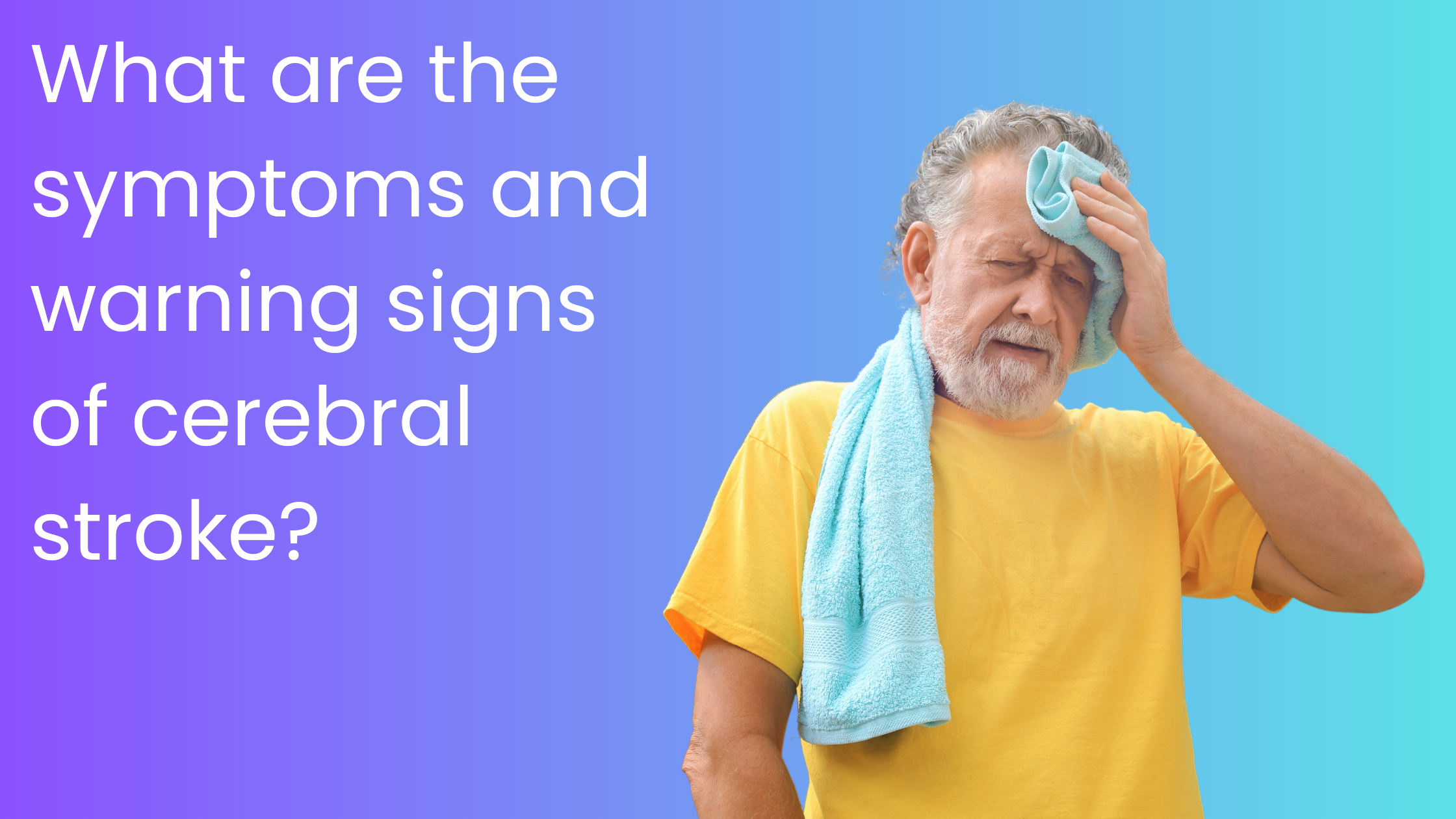
What are the symptoms and warning signs of cerebral stroke?
admin
- 0
The human brain, an intricate web of neurons and pathways, orchestrates every thought, emotion, and movement.
Yet, lurking in the shadows is a formidable adversary: cerebral stroke.
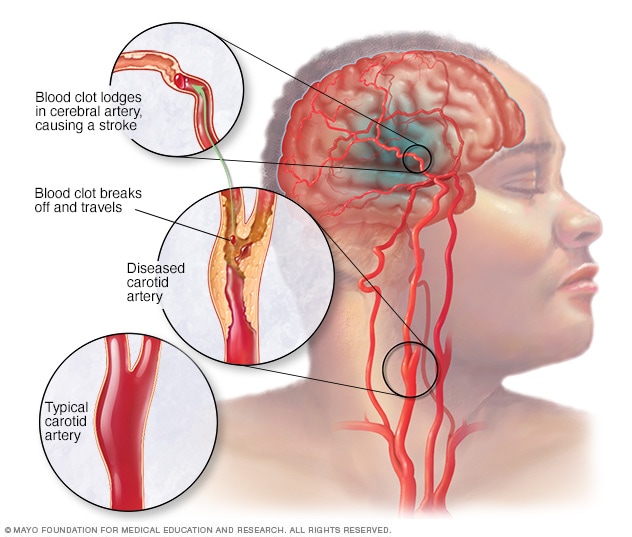
This sudden disruption of blood flow to the brain demands our attention, as recognizing its symptoms and seeking timely intervention can be the difference between life and lasting impairment.
In this article, we delve into the world of cerebral stroke symptoms, exploring the warning signs that demand immediate action.
Read More: What Are The Types Of Neuro Degenerative Disorder?
Understanding Cerebral Stroke: A Silent Menace
Cerebral stroke, often referred to as a brain attack, occurs when blood supply to a part of the brain is cut off due to a clot or a burst blood vessel.
This deprivation of oxygen and nutrients can lead to irreversible damage to brain cells within minutes.
Being vigilant about recognizing the symptoms can significantly enhance the chances of survival and recovery.
Read More: Cost of Autism Treatment
Recognizing the Cerebral Stroke Symptoms: Listen to Your Body
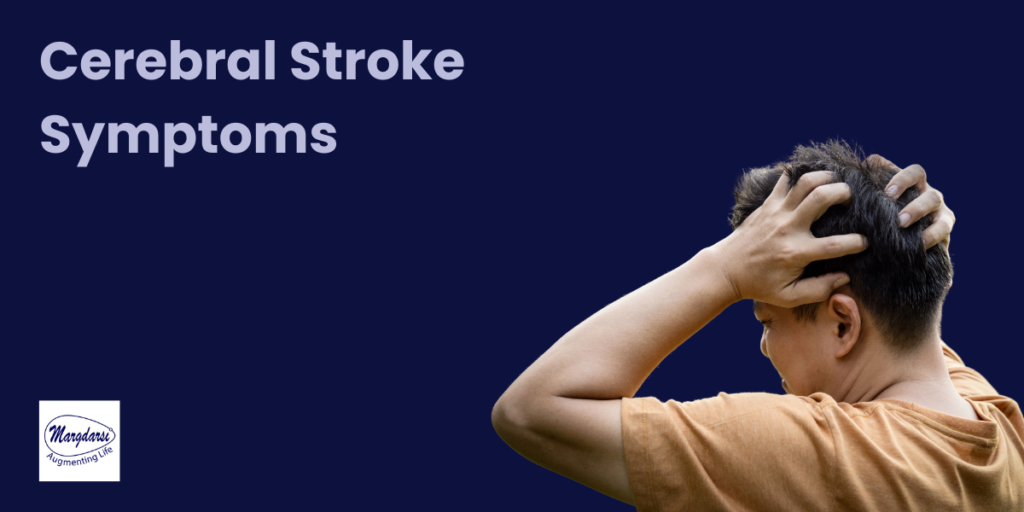
Sudden Weakness or Numbness: One side of the face, arm, or leg may suddenly become weak or numb. This can manifest as a drooping smile, difficulty holding objects, or stumbling.
Trouble Speaking or Understanding: Incoherent speech, slurred words, or difficulty comprehending speech can be indicative of a cerebral stroke. You can consult with best hearing centre in Bhubneshwar.
Severe Headache: A sudden, intense headache, often described as the worst headache of one’s life, can accompany a cerebral stroke, especially if it’s accompanied by other symptoms.
Vision Disturbances: Blurred or double vision, sudden loss of vision in one or both eyes, or difficulty focusing can signal a stroke.
Dizziness and Loss of Balance: Sudden unexplained dizziness, difficulty walking, and loss of coordination can point towards a stroke.
Confusion and Disorientation: A sudden onset of confusion, trouble understanding, or disorientation can be a red flag.
Facial Drooping: One side of the face may droop, especially noticeable when trying to smile.
Loss of Sensation: A sudden loss of sensation in any part of the body can be a sign of a stroke.
The Urgency of Immediate Action: Warning Signs
Time is of the essence when it comes to a cerebral stroke.
The moment you notice any of the symptoms mentioned above, it’s imperative to seek medical attention without delay.
Swift intervention can help minimize the damage and improve the chances of recovery.
Read More: Autism Spectrum Disorder Treatment in Odisha: Hope and Help
Margdarsi: Your Beacon of Hope for Cerebral Stroke Treatment
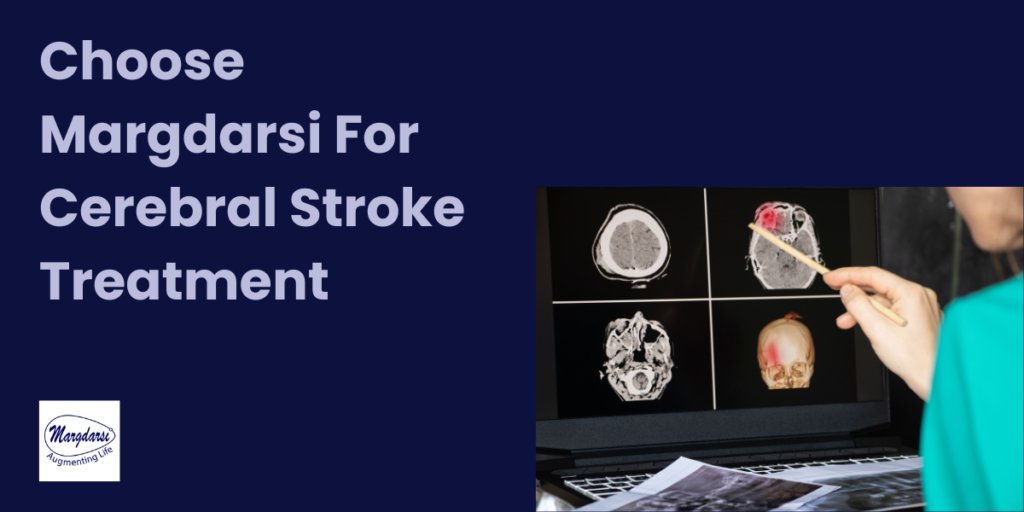
When facing a cerebral stroke, having a reliable and expert medical team by your side can make all the difference.
Margdarsi stands as a beacon of hope, offering advanced and comprehensive cerebral stroke treatment. taking care from Cerebral Stroke Symptoms.
With a team of experienced neurologists, state-of-the-art facilities, and a patient-centric approach, Margdarsi ensures that each patient receives timely and effective care.
In conclusion, Margdarsi stands out as the best cerebral stroke centre in Odisha, offering comprehensive care for a wide range of injuries and diseases. They are also the best hearing centre in Odisha.
Read More: Power Of Hearing Aids
Why Choose Margdarsi for Cerebral Stroke Treatment?
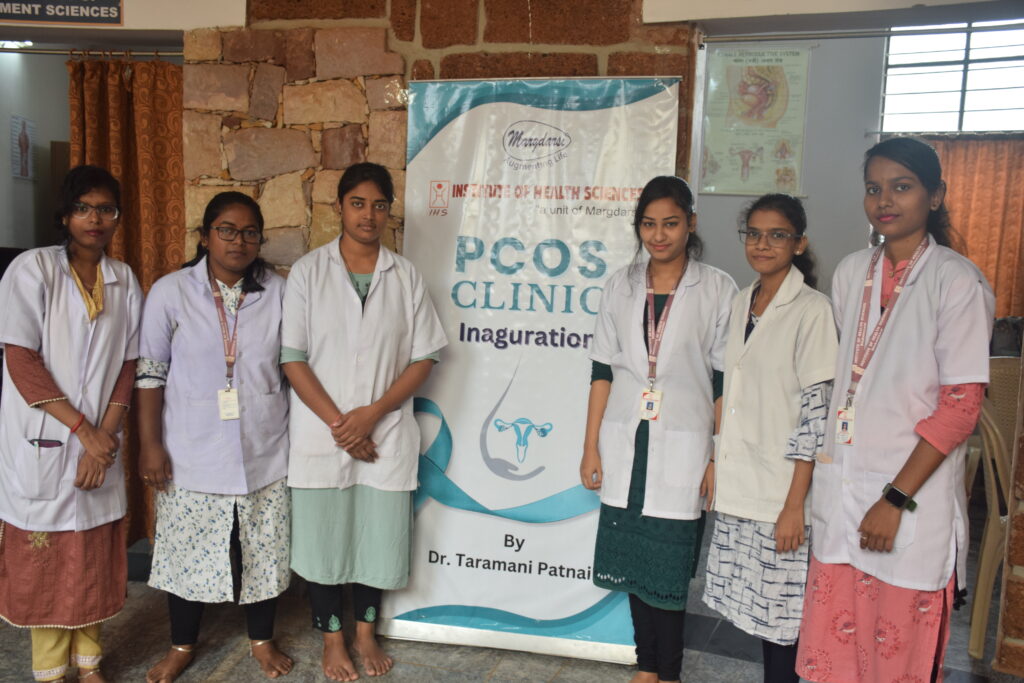
Experienced Specialists: Margdarsi boasts a team of highly skilled neurologists and medical professionals who specialize in cerebral stroke treatment.
Advanced Technology: Equipped with cutting-edge diagnostic tools and treatment methods, Margdarsi ensures accurate diagnosis and personalized care.
Holistic Approach: Margdarsi takes a holistic approach to treatment, addressing not only the physical aspects but also the emotional and psychological well-being of patients. Connect with best physiotherapy centre in Odisha.
Rehabilitation Services: Post-treatment, Margdarsi provides comprehensive rehabilitation services to aid patients in regaining their functionality and independence.
Patient-Centric Care: At Margdarsi, patients are at the heart of everything. The team is dedicated to providing compassionate care that considers each patient’s unique needs. Autism Treatment in Bhubaneswar a well-rounded clinic with multiple services will have you covered.
In conclusion, cerebral stroke symptoms are the body’s urgent call for help.
Recognizing these warning signs and seeking immediate medical attention can save lives and prevent lasting damage.
When it comes to cerebral stroke treatment, Margdarsi emerges as the ideal choice, offering expertise, advanced technology, and unwavering support on the journey towards recovery.
Your well-being is our priority, and Margdarsi stands as your steadfast partner in the fight against cerebral stroke.
FREE CONSULTANCY ON CEREBRAL STROKE: Call 9338182207
Commonly Asked Questions- Cerebral Stroke
[saswp_tiny_multiple_faq headline-0=”h5″ question-0=”What is the major cause of cerebral stroke?” answer-0=”The major cause of cerebral stroke is the interruption of blood flow to the brain. This interruption can occur due to a blockage in an artery (ischemic stroke) or a rupture of a blood vessel (hemorrhagic stroke), both of which result in a lack of oxygen and nutrients reaching brain cells, leading to their damage or death.” image-0=”” headline-1=”h5″ question-1=”Is cerebral stroke treatable?” answer-1=”Yes, cerebral strokes are treatable, but the success of treatment depends on various factors, including the type of stroke, how quickly treatment is administered, and the overall health of the patient. Ischemic strokes can often be treated with medications like tissue plasminogen activator (tPA) to dissolve blood clots, or through mechanical thrombectomy procedures. Hemorrhagic strokes may require surgery to repair the blood vessel or control bleeding.” image-1=”” headline-2=”h5″ question-2=”What are the warning signs 7 days before a stroke?” answer-2=”There are typically no specific warning signs that consistently occur 7 days before a stroke. However, if someone experiences sudden and significant changes in health, such as severe headaches, confusion, difficulty speaking, or sudden weakness, it’s essential to seek medical attention immediately.” image-2=”” headline-3=”h5″ question-3=”What are the 4 silent signs of a stroke?” answer-3=”The “4 silent signs” of a stroke are often referred to as subtle symptoms that may occur before a more severe stroke event. These can include sudden numbness or weakness on one side of the body, difficulty understanding or speaking, sudden trouble seeing in one or both eyes, and dizziness or loss of balance. It’s important to recognize these signs and seek medical help promptly.” image-3=”” headline-4=”h5″ question-4=”What is the best treatment for stroke?” answer-4=”The best treatment for a stroke depends on the type of stroke and the individual’s medical condition. Ischemic strokes can be treated with medications that dissolve blood clots or through mechanical procedures to remove clots. Hemorrhagic strokes may require surgical intervention to control bleeding. Early intervention and prompt medical care are crucial for the best possible outcomes.” image-4=”” headline-5=”h5″ question-5=”What are the 5 warning signs of a mini stroke?” answer-5=”Mini-strokes, also known as transient ischemic attacks (TIAs), often exhibit similar warning signs to full strokes, but they are temporary and typically last for a short time. These warning signs can include sudden numbness or weakness, confusion, trouble speaking or understanding, vision problems, and dizziness or loss of balance.” image-5=”” headline-6=”h5″ question-6=”What is the best recovery for a stroke?” answer-6=”Stroke recovery varies for each individual and depends on factors like the severity of the stroke, the area of the brain affected, and the individual’s overall health. Rehabilitation programs, including physical therapy, speech therapy, and occupational therapy, are often used to help patients regain lost functions and improve their quality of life.” image-6=”” headline-7=”h5″ question-7=”What are good signs after a stroke?” answer-7=”Positive signs after a stroke include improvements in motor skills, speech, and cognitive function during rehabilitation. Regaining independence in daily activities, increased strength and coordination, and the ability to communicate effectively are all positive indicators of recovery.” image-7=”” headline-8=”h5″ question-8=”How long is stroke recovery?” answer-8=”Stroke recovery is a gradual process that can take weeks, months, or even years. The extent of recovery varies among individuals. Early and consistent rehabilitation efforts play a crucial role in the speed and quality of recovery.” image-8=”” headline-9=”h5″ question-9=”Do stroke patients sleep a lot?” answer-9=”Fatigue and sleep disturbances are common after a stroke. Many stroke patients might experience increased sleepiness or find themselves needing more rest than usual. This can be a normal part of the recovery process.” image-9=”” headline-10=”h5″ question-10=”Do stroke patients recover?” answer-10=”Yes, many stroke patients do recover to some extent. The extent of recovery depends on various factors, including the type and severity of the stroke, the speed of medical intervention, the effectiveness of rehabilitation, and the patient’s overall health.” image-10=”” headline-11=”h5″ question-11=”Is there a normal life after a stroke?” answer-11=”Many stroke survivors can go on to lead fulfilling lives, although there might be adjustments to lifestyle and daily routines. Rehabilitation, support from healthcare professionals, and a strong support network can significantly contribute to achieving a “new normal” after a stroke.” image-11=”” headline-12=”h5″ question-12=”What is life after a stroke?” answer-12=”Life after a stroke involves adapting to changes, working on rehabilitation, managing any lingering effects, and focusing on overall health. Many stroke survivors find ways to continue engaging in activities they enjoy and maintaining social connections.” image-12=”” headline-13=”h5″ question-13=”Can I live a long life after a stroke?” answer-13=”Yes, many stroke survivors can live long and meaningful lives. Lifestyle changes, medication adherence, and ongoing healthcare management can contribute to a healthier life post-stroke. Regular medical follow-ups, a balanced diet, physical activity, and a positive outlook all play roles in enhancing longevity after a stroke.” image-13=”” count=”14″ html=”true”]

